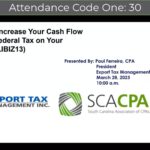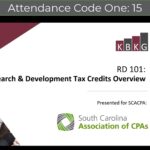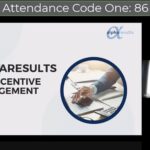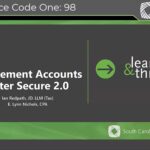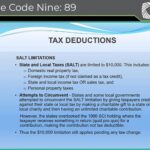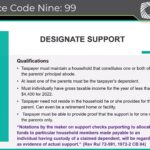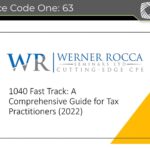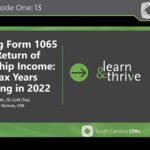The Interest Charge – Domestic International Sales Corporation (IC-DISC) will reduce federal income tax on your export sales and increase your after-tax cash flow. You will gain an understanding of the sales and services that will qualify for the IC-DISC and the shareholder value you will add with an IC-DISC. Discussion Leader: Paul Ferreira
Introduction to Cost Segregation and the Impacts of Tax Reform (LIBIZ16/23)
A Cost Segregation Study dissects the construction cost or purchase price of real property that would normally depreciate over a long period and reallocates costs into shorter tax lives of 5, 7 or 15 years. This introductory course will provide background information, depreciation rules, and how a cost segregation study is performed. Discussion Leader: Winston Shurtz
Research and Development Tax Credit Overview (LIBIZ10/23)
This course will cover the fundamentals of the Research and Development (R&D) Tax Credit.
Topics include history and recent developments, project qualifications, calculating the benefits, the chronology of a typical project, and common issues. Each year hundreds of companies are taking advantage of the credit to increase their bottom line. It’s time to learn how you can benefit!
Navigating Tax Incentives for Your Clients: What You Need to Know About the ERC and the SCJTC (LIBIZ01/23)
This session will walk you through the qualifications for the South Carolina New Jobs Tax Credit, the benefits it can offer, and how to take advantage of this incentive. We will also break down all the rumors and false information about the ERC so you can protect your clients from being scammed, and we will walk through the actual qualifications for this credit. Discussion Leader: Darren Miller
An Overview of SECURE 2.0 – A Guide to the Important Changes That All Practitioners Should Know (LITX44/23)
This course provides an overview of retirement changes brought about by SECURE 2.0 signed into law at the end of 2022. All practitioners preparing individual returns and those representing small businesses who may have or want to implement retirement plans will undoubtedly have questions raised by clients this tax season. This program will benefit both by answering many of the questions practitioners will encounter. Discussion Leaders: Lynn Nichols and Ian Redpath
Important Information Required for Forms for 2023 (LITX37/23) (Part Two)
This course is essential for the tax practitioner who wants to update their knowledge of IRS tax forms used in compliance.
Important Information Required for Forms for 2023 (LITX37/23) (Part One)
This course is essential for the tax practitioner who wants to update their knowledge of IRS tax forms used in compliance.
1040 Fast Track: A Comprehensive Guide for Tax Practitioners- Part Two (LITX35/23)
This course is essential for the tax practitioner who wants to update their knowledge of individual income taxation. This course will provide a comprehensive review of Form 1040 complexities for the 2022 tax year. Included will be a thorough review of all tax codes made by the SECURE Act and the CARES Act. We will update and include any additional changes made to the internal revenue code prior to this lecture. Discussion Leader: Arthur Werner
1040 Fast Track: A Comprehensive Guide for Tax Practitioners- Part 1 (LITX35/23)
This course is essential for the tax practitioner who wants to update their knowledge of individual income taxation. This course will provide a comprehensive review of Form 1040 complexities for the 2022 tax year. Included will be a thorough review of all tax codes made by the SECURE Act and the CARES Act. We will update and include any additional changes made to the internal revenue code prior to this lecture. Discussion Leader: Art Werner
Form 1065 (LITX32/23)
New compliance initiatives, IRS audit emphasis, new attachments. 1065 preparation is an important part of tax practice and there are challenging changes. Discussion Leader: E. Lynn Nichols and Ian Redpath

